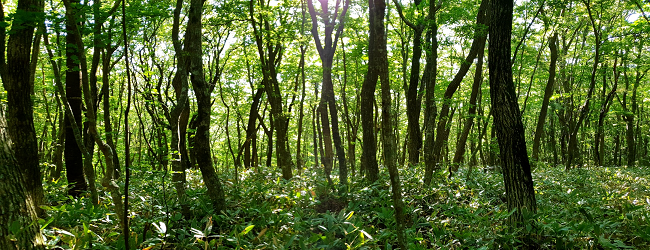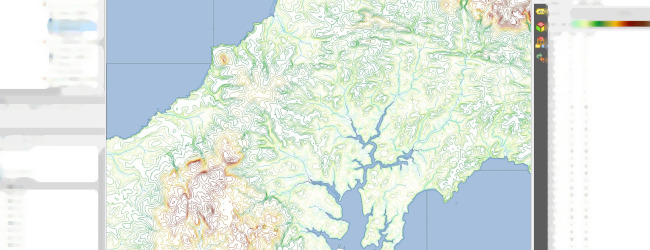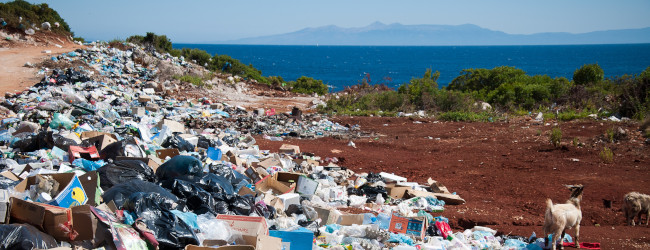
The major challenge nowadays concerns the global environmental change, focusing on the interactions between ecosystems and mankind, the effects of global environmental change on environmental degradation, the effects of increasing social request for resources, ecosystem services, and environmental goods. The relevant objects of environmental security are complex, adaptive systems with two main components – the social, characterized by human intent, and the ecological, rising without intent; these have interacted historically, and society strongly determines the landscape ecological components of such systems (Zurlini, Müller, 2008).
In this module, we will address the main concepts related to a general vision of Environmental Security, like Human Security, Gender Security or the environmental stress as a source of conflict (the impact of wars, forest fires, droughts, etc. in the environmental security).

All disturbances produce impacts on ecosystems. The level and direction of impact (negative or positive) depend on ecosystem resistance and resilience, as well as on the severity of the disturbance. The variability in resource damage and response from site to site and ecosystem to ecosystem is highly dependent on the burn or fire severity.
The Fire Effects Information System (FEIS) is an easy to use, computerized knowledge management system, created by the Forest Service of United States Department of Agriculture, that stores and retrieves current information as organized in an encyclopedic fashion and it can be adapted to any region in the world. At present, the knowledge management tools are not powerful enough to save researchers and practitioners precious time and money. The knowledge base is too often largely ignored because it is too costly to find and process the needed information. In other words, much of the scientific and technical knowledge is not useful. FEIS was created to deal with exactly this knowledge management problem. The solution involves structuring knowledge: assimilating and thereby compacting research results into an organized framework. While not explicitly designed and developed to conform with a preconceived knowledge management model.
Slope protection and erosion control entail the integrated or conjunctive use of plants and structures. Plants can be introduced and established in and around structural systems, under the category of "mixed construction" methods. Plants can be introduced, for example, on the benches of tiered retaining wall systems or, alternatively, they can be inserted and established in the interstices or frontal openings of porous revetments, cellular grids, and retaining structures. They can also be introduced in and around check dams.

Soil degradation, soil erosion, land degradation and desertification are different types of degradation of the soils. Soil contamination or soil pollution is caused by the presence of xenobiotic (human-made) chemicals or other alteration in the natural soil environment. It is typically caused by industrial activity, agricultural chemicals, or improper disposal of waste. Any unwanted substance introduced into the environment is seen as a ‘contaminant’.
Rehabilitation is required when the land is already degraded to such an extent that the original use is no longer possible and the land has become practically unproductive. Here longer-term and often more costly investments are needed to show any impact.


At a global scale, the waste management sector makes a relatively minor contribution to greenhouse gas (GHG) emissions, estimated at approximately 3-5% of total anthropogenic emissions in 2005. However, the waste sector is in a unique position to move from being a minor source of global emissions to becoming a major saver of emissions. Although minor levels of emissions are released through waste treatment and disposal, the prevention and recovery of wastes (i.e. as secondary materials or energy) avoid emissions in all other sectors of the economy. A holistic approach to waste management has positive consequences for GHG emissions from the energy, forestry, agriculture, mining, transport, and manufacturing sectors.
The waste generation does not result in positive impacts on the climate. Waste treatment and disposal can have both positive and negative climate impacts. Therefore, an increasingly key focus of waste management activities is to reduce GHG emissions.

This module will examine the broad and deep science on climate change, the negative impacts and alarming prospects for much worse in a business-as-usual scenario, the history of the issue, the economics, the politics – both domestic and international, the policy debates and options, and the range of solutions available now and in the near future.
Goal: The goal of this module is to support an effective solution to the challenges presented by climate change.

In this module we will address the main concepts related to climate change governance, observed effects of climate change, emission scenarios and the international response to climate change (Intergovernmental Panel on Climate Change, United Nations Framework Convention on Climate Change, Kyoto Protocol and European Commission).
The goal of the module is to understand the importance of climate change governance, focusing especially on the mechanism and role of national governments in formulating strategies and policies for mitigation and adaptation to climate change.

The purpose of the subject is to familiarize the student with basic concepts and principles related to the social issues, forests and poverty issues including the links to environmental security. On successful completion of the module, the students are expected to acquire a number of generic and specific competences in environmental management and security.
Goal: To understand the concepts, methods and problems linking forests, poverty and environmental security and to develop research skills for further studies.

The purpose of the subject is to familiarize the student with basic concepts and principles related to the scientific research methodology, such as the different research methods, their stages, the ethics of scientific research, the information retrieval from the Internet, etc.

In this module, we will address the main concepts related to a general vision of Environmental Security, like Human Security, Gender Security or the environmental stress as a source of conflict (the impact of wars, forest fires, droughts, etc. in the environmental security).
Goal: The goal of the module is to acquire a general view of soft skills and the importance of the practical use and understanding of these skills in order to properly behave in differing environments and situations.
